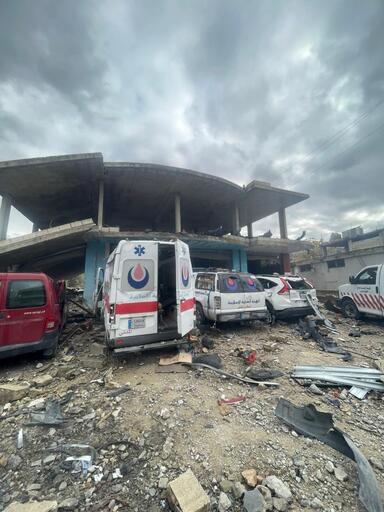Difficult negotiations continue to be ongoing between the Lebanese government and Hezbollah with the question of if and how to potential disarm the organization, in keeping with US and Israeli demands.
The matter is important right now because while Israel is attacking Lebanon effectively every day, the US is pushing a “normalization” move that might conceivably end those attacks, but Israel is conditioning it on Hezbollah’s disarmament before talks even begin.
More details have emerged in recent days about the US demands on the matter. Though the ceasefire only counseled Hezbollah to be removed from south of the Litani River, the US demand is now a full Lebanese state monopoly on arms, the full disarmament of Hezbollah nationwide along with the full disarmament of every other militia in the country. According to reports, the US demands this be done by the end of the year.
That’s a tall order, and potentially not even possible. Hezbollah is reportedly unwilling to seriously consider disarming unless Israel stops attacking and occupying southern Lebanon. Since Israel won’t discuss that until the disarmament, they’re potentially stuck here. Some in Lebanon are reportedly considering a phased disarmament deal, but its not clear that will satisfy either side.

An image of southern Lebanon after the ceasefire began. ©MSF
The effort by the Lebanese government to draft a response to US demands is also seeing reports of Hezbollah having its own difficult “internal deliberations.” A lot of support hinges on Israel withdrawing and not attacking anymore though, and that’s seemingly a non-starter for a lot of Israelis.
Reportedly the phased disarmament deal would see Hezbollah disarmed by November, conceivably meeting the US target of year’s end. The problem is that is conditioned on Hezbollah’s acceptance, which they may not get, and also falls short of the US demand to disarm everybody, not just Hezbollah.
Further adding to the difficulty is that while the US proposal is that if Lebanon meets the disarmament demands Israel will withdraw and stop attacking, both of which were parts of the original US-brokered ceasefire and which the US repeatedly promised Israel would do but which plainly haven’t happened.
Israel hasn’t publicly affirmed they would really be open to ending the occupation or the active strikes under normalization, and the Israeli media is presenting Iran as blocking the whole matter by urging Hezbollah to reject the plan at any rate. Though there has been no confirmation of this from either Iran or Hezbollah, there is likely plenty of reason to be skeptical of the US promises attached to this demand without Israel affirming any sort of commitment to follow through, especially since Israel agreed to all these things last November during the ceasefire and has ignored them to this day.
The glaring lack of any public US reaction to Israel flouting the ceasefire since they are meant be the guarantors is probably informing the debates, and will likely make a new round of concessions for the exact same promises they didn’t deliver last time a harder sell, to say the least.


